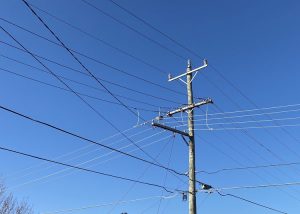Regulators voted for affordable net metering in Arizona Thursday, letting consumers with rooftop solar panels sell excess power back to the utility, a major incentive for homeowners to invest in renewable energy. Net metering, plus savings from producing their own power, can save solar panel owners up to two-thirds on their energy bills, and have been a driving force behind the rooftop solar revolution.
Utility companies hoped Arizona would be the first to charge high enough fees to make solar panels too expensive for consumers, around $50 to $100 a month. That would be enough to make solar sales plunge, which utilities would prefer so they wouldn’t have to pay market rates for consumer-produced electricity. And higher fees in Arizona could have opened the door to similar policies in other states. Instead, the Arizona Corporation Commission (ACC) voted to charge 70 cents per kilowatt, meaning homeowners will pay about $5 a month.
Forty-three states and the District of Columbia already have net metering policies, and they’ve played a large role in the growth of rooftop solar nationwide, along with rapidly-falling solar panel costs.
Utilities argue that net metering amounts to an unfair subsidy for solar, not taking into account fixed costs like grid maintenance and labor. But solar benefits the grid as well: cutting demand during peak use, reducing transmission and distribution costs, cutting greenhouse gas emissions, and generating energy without polluting the air.
Arizona Public Service (APS), the state’s largest utility, advocated for charging customers more and came under fire during the regulation hearings for renewing its membership with clean energy opponent ALEC and links to another Koch-linked anti-solar group. Even four out of five ACC commissioners have close ties to ALEC, according to aThinkProgress analysis.
The regulation was highly contested, with APS spending $4 million on advertising for raising fees, while the solar industry spent a meager $400,000.
Bryan Miller, president of The Alliance for Solar Choice and vice president of public policy for solar company Sunrun, Inc. said the vote would open the door to more solar growth. “APS launched an unprecedented campaign spending millions of dollars to destroy the rooftop solar industry and they failed.”
Source: Climate Progress. Reproduced with permission.






